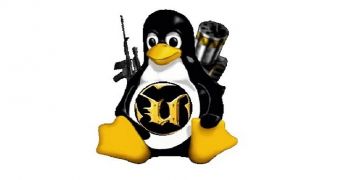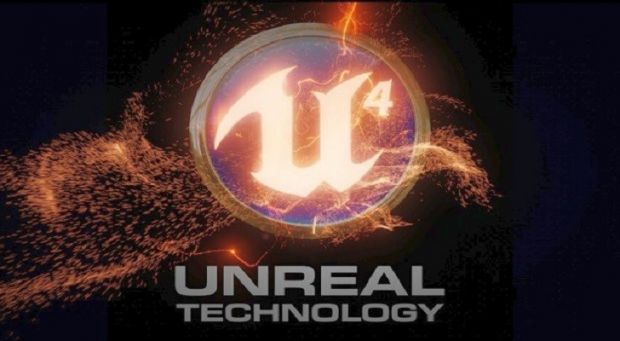It's time to add the much-awaited Linux year to the Chinese calendar, because it looks like 2014 is set to bring together what will become the John Connor to Linux's exclusion from the gaming world, which for the purposes of this joke we'll call Skynet.
Don't mess up the prequels
I remember my first foray into Linux, a long time ago in a galaxy far, far away, when the concept of a graphical user interface was as foreign to the OS as stability was for Windows.
Not being very interested in picking up what I perceived as a DOS-like operating system that lacked all the fancy eye candy that Norton Commander had spoiled me with, it was years until I would come to discover the wonderful glory of Ubuntu and Gnome.
But the presence of an attractive shell still did not solve Linux' other big problem: the lack of OS compatibility of all kinds of wonderful games that were native to the Windows ecosystem, and lack of a single be-all and end-all distribution that had proper driver support for everything.
A new hope
Thankfully, things have changed a lot, as they tend to do when technology is involved, and now there is a ton of neat stuff to look forward to. There are still some hurdles to jump over, though.
Whenever you saw the words "powered by Unity" slapped across the forehead of yet another game, your first thoughts were that it would most likely be a while until a Linux port becomes available, if at all.
The surge in independent development activity was a real boon to the gaming industry, showing that what was initially perceived as a tiny niche had the potential to grow way beyond any expectations.
And it did, taking off mainly through the use of the inexpensive and easy-to-use Unity engine (among others, of course), whose developers have stated not two months ago that native Linux development isn't in the cards, as far as they're concerned.
Nonetheless, it was still a boon for gaming in general, and Valve's efforts to also reach Linux users delivered more games in the last year and a half that were available since the beginning of time.
Although the Linux desktop market share is considered a tiny niche, it too has the potential to grow, maybe not as spectacularly as the indie game development industry did, but nonetheless much more than it had in previous years.
Epic strikes back
There are several reasons for this, the most important being that Epic has just integrated Steam OS and Linux into their development plans. Having the very powerful Unreal Engine run natively on the Linux platform comes with a lot of subtext.
The Linux crowd is generally more computer-literate than your average Windows user, and, in spite of the lack of support from the big players in the gaming industry, there are many community-driven projects that attempt to offer alternatives for adopters of the penguin.
The Linux community has always proven to be a reliable source of new tools and ports over the years, and having the native tools right from the major developers of game-making tools will surely streamline the process a great deal.
There are still things that will slow the process down, though. The small market share that Linux-equipped computers have has prevented publishers and developers from traditionally considering it a valid deployment platform, the costs of creating Linux ports being deemed unjustified.
This will also be the case in the future, as the Linux market share hasn't exactly grown by a lot in recent years, and it's not likely to set the operating system world on fire any time soon, especially since there are less and less traditional desktop computers being sold all around the world.
But at least the very driven community will have first-hand access to Unreal Engine, which is an extremely powerful tool. In addition to this, CryEngine has also pledged their support for Linux.
This means that triple A games not having a Linux version is closer and closer to being a thing of the past; for now though, Linux support is in a sad state, which is a pretty big problem for the platform. But that is likely to change.
Return of the Crowbar Knight
Valve intends to spend some serious money on their upcoming Steam boxes, which should start popping up in people's homes sometime around 2015. Everyone expects them to launch with a boom, with a solid line-up of launch titles, which means that at least some big-time developers are going to be knee-deep into making stuff for Linux systems this year.
Furthermore, since Valve intends to make the Debian Linux kernel-based Steam OS freely available to everybody who wants to install it on their PC, it means that another big problem that Linux has is likely to get solved.
Linux has traditionally been a hobby operating system more than a business-minded one, so Valve's efforts to push its flavor of it could mean a big step forward for the average users that are usually deterred by the amount of work needed to get Linux properly working on your machine, as opposed to a much more familiar Windows experience.
Valve's integration of Linux into its long-term plans means that there is a strong possibility that end users will have a one-stop solution to function as an alternative for Windows as far as basic computing needs go, which could in turn increase the incentive for them to try it out.
The sales of Macbooks and the growing market share of Apple's OS translated into a significant growth in Mac game development, and Mac OS is now regarded as a legitimate deployment platform that sees support from publishers, developers and hardware accessory makers.
Linux still faces a lot of problems as far as, say, your aunt is concerned, because there is simply too much choice when it comes to distros, and you might also have to read some docs in order to be able to install all the drivers and have everything working properly.
This is Linux's big chance to get all major players in the gaming industry on board, with its millions of concurrent Steam users that are online at any given time making for a very tangible and attractive potential market.
It's not exactly a perfect storm, but it's still the biggest hope for Linux to join the big boys' table so far, and so I say we make 2014 the year of Linux gaming emancipation. Pop the cork and prepare for the inundation of big Linux games.

 14 DAY TRIAL //
14 DAY TRIAL // 

